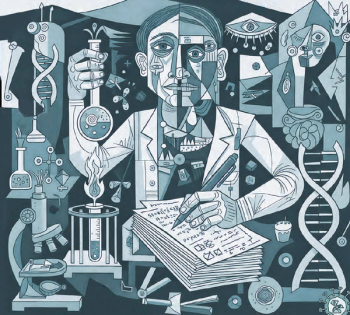
Eli Lilly, Regeneron Both File for EUAs for COVID-19 Investigational Therapies
The President gave Regeneron’s therapy, REGN-COV2, a ringing endorsement Wednesday night and stated both companies’ therapies should be given for free to the public.
Last night, Eli Lilly and Regeneron both filed requests to the US Food and Drug Administration (FDA) for Emergency Use Authorizations (EUAs) for their companies’ investigational monoclonal antibody therapies for COVID-19.
This came on the same evening President Donald Trump gave Regeneron’s REGN-COV2, an investigational antibody combination for COVID-19, a ringing endorsement in a video released on Twitter.
"I went in [Walter Reed Hospital] and I wasn’t feeling so hot, and within a very short period of time, they gave me Regeneron…and other things too, but I think it was the key,” Trump said in the video message. “It was like unbelievable. I felt good immediately; I felt as good 3 days ago as I do now.”
He also spoke about Eli Lily’s investigational antibody therapy and how they are looking to get them both approved for emergency use and to be able to offer them for free to patients.
That same evening, Regeneron filed the EUA.
Prior to this development, REGN-COV2 had been in various clinical trials. It is being studied in a phase 2/3 clinical trial for hospitalized patients, the phase 3 open-label RECOVERY trial of hospitalized patients in the United Kingdom and a phase 3 trial for the prevention of COVID-19 in household contacts of infected individuals.
REGN-COV2 reduced seronegative patients’ viral load through Day 7. The mean time-weighted-average change from baseline nasopharyngeal (NP) viral load through Day 7 in the seronegative group was a 0.60 log10 copies/mL greater reduction (p=0.03) in patients treated with high dose, and a 0.51 log10 copies/mL greater reduction (p=0.06) in patients treated with low dose, compared to placebo.
For Lilly, they
“The new phase 2 data, from Eli Lilly and Company, gives insight into investigational antibodies LY-CoV555 (bamlanivimab) and LY-CoV016 (etesevimab) as both monotherapy and combination therapy options for patients with mild to moderate COVID-19,” wrote Managing Editor Kevin Kunzmann in a news story yesterday.
“Interim data from the BLAZE-1 clinical trial showed a pair of monoclonal antibodies designed to neutralize SARS-CoV-2 were associated with reduced viral load, symptoms, and hospitalizations or emergency room (ER) visits associated with
Lilly said the new data showed the combination therapy met primary and secondary endpoints, reducing viral load, symptoms and hospitalizations.
Lilly submitted a request for an EUA for its monotherapy to the FDA as well.
Newsletter
Stay ahead of emerging infectious disease threats with expert insights and breaking research. Subscribe now to get updates delivered straight to your inbox.
































































































































